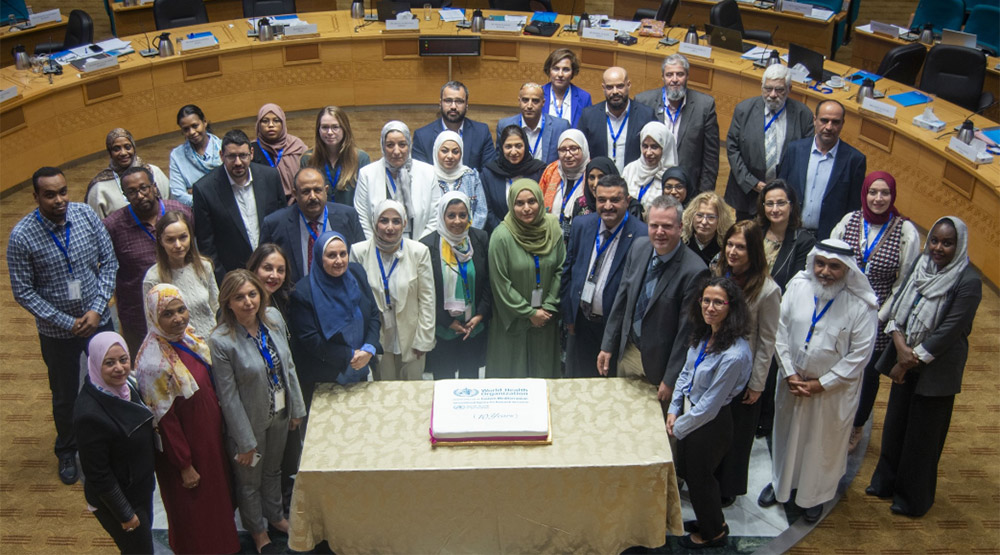
20 December 2023 – WHO and the International Agency for Research on Cancer (IARC) continue to work together to improve cancer surveillance systems in the WHO Eastern Mediterranean Region. The aim is to improve reporting and surveillance systems and the quality of cancer-related data – ultimately to contribute to cancer control. Such efforts support the millions of people in the Region at risk of or living with cancer.
IARC and the WHO Regional Office for the Eastern Mediterranean have just celebrated 10 years of collaboration to support cancer surveillance in the Region. In their sights for the next decade are further improvements in both cancer data and cancer control across the Region’s countries and territories.
The 10-year milestone was marked at a workshop on cancer data use to inform cancer control planning, which was co-hosted by IARC and the Regional Office and held at the latter’s premises in Cairo, Egypt. The participants were experts from cancer registries, and noncommunicable diseases programme focal points based at health ministries across the Region.
The workshop focused on details of the planned programme of work on causes of cancer in the Region. This is one of the priority areas set out in the WHO Regional Office–IARC 5th Joint Action Plan 2023, in terms of cancer surveillance and risk factors. The Joint Action Plan’s focus is on co-development, training and knowledge exchange to support national assessment of major causes of cancer across the Region. It also aims to expand and sustain high-quality cancer surveillance systems, as well as capacity-building in the use and sharing of indicators to support advocacy for cancer prevention.
Opening the workshop were Dr Asmus Hammerich, Director of Universal Health Coverage/ Noncommunicable Diseases and Mental Health at the Regional Office, and Dr Freddie Bray, Head of the Cancer Surveillance Branch at IARC. Dr Hammerich and Dr Bray were co-creators of the 1st IARC–WHO Regional Office Action Plan.
Since 2013, the IARC–WHO Regional Office partnership has ensured progress in the development of sustainable and high-quality cancer surveillance systems for cancer control across the Region.
Through the Global Initiative for Cancer Registry Development (GICR), IARC and the Regional Office have provided technical support to 20 Eastern Mediterranean countries, including site visits, plus tailored recommendations to 12 countries. More than 100 cancer registry professionals, including 3 GICR Net regional trainers, have been trained in the last decade. This was achieved through a series of 5 workshops covering basic and advanced cancer registration topics.
Cancer registry teams from 5 countries of the Eastern Mediterranean Region have also received on-site training in cancer registration procedures at Izmir Cancer Registry, Türkiye. This was organized in tandem with the IARC Regional Hub for Cancer Registration in Northern Africa, Central and Western Asia and the respective WHO country offices.


